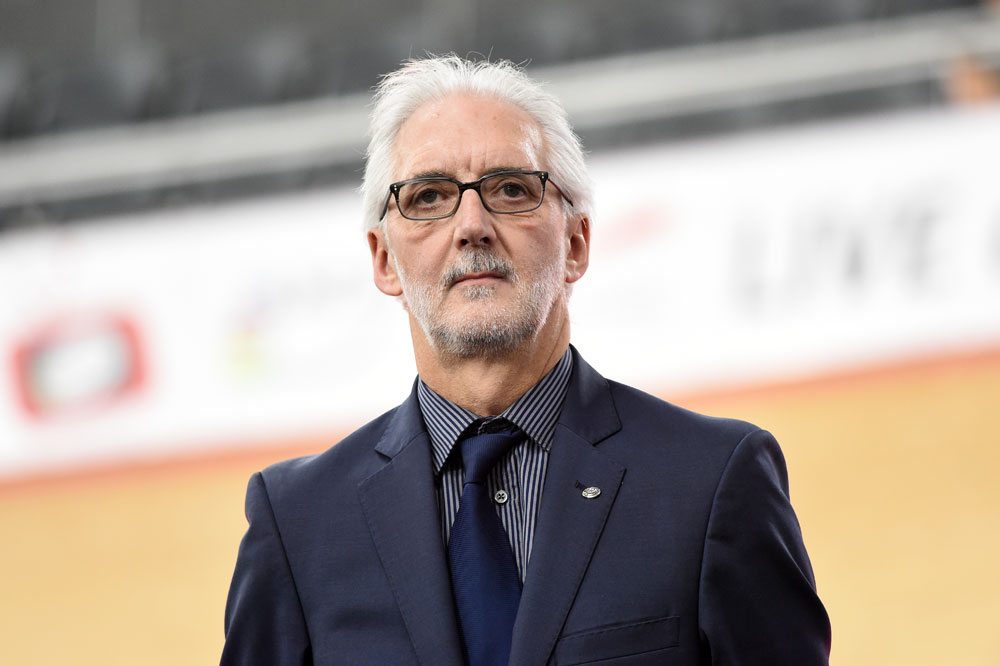Brian Cookson explains new UCI doping reforms
UCI president Brian Cookson emphasises importance of regulations being "legally defensible" in light of possible appeals

The latest race content, interviews, features, reviews and expert buying guides, direct to your inbox!
You are now subscribed
Your newsletter sign-up was successful
Following the UCI's announcement of stronger anti-doping rules, its president Brian Cookson admits there is still some way to go in the reform of professional cycling, with responsible action needing to be taken against those caught cheating.
The new rules allow the UCI to suspend teams for up to 12 months if three or more cyclists are caught cheating, which comes in the wake of the Astana doping scandal, where a string of riders from the Kazakh team failed drugs test at the end of 2014.
The UCI Licence Commission granted Alexandre Vinokourov's team a WorldTour licence in December because its own rules prevented it from doing otherwise, therefore avoiding an appeal to the Court of Arbitration for Sport (CAS), as happened with Katusha's exclusion on 'ethical grounds' in 2013.
Speaking to Cycling Weekly in Berlin, Cookson insisted the UCI License Commission had reached the only legally defensible conclusion by renewing Astana's WorldTour licence, despite protestations from riders and fans alike.
"You can't impose rules by breaking rules," he said. "In the Astana case the Licence Commission could only take into consideration what information they had. Since then new information has come to light and we've asked CONI [the Italian Olympic Committee] for that information. We've also got the University of Lausanne doing an audit of the team and we've put them on a very close watch.
"You have to make sure that when you take disciplinary action you do it in a way that is legally defensible. It's not about the money or the legal fees – I'll throw money at the problem like that – it's about what happens when the appeal is lodged.
"It's about when that [appeal] goes to CAS and making sure that you win to set a precedent, not lose and set a negative precedent. We've got to do it in the right way, by taking legal advice, and that's what we are doing."
The latest race content, interviews, features, reviews and expert buying guides, direct to your inbox!
The renewal of Astana's licence, and the claims made against the team in the Padova report, prompted several cyclists, including Team Sky's Peter Kennaugh and Lotto-Soudal's André Greipel, to voice their dismay at the decision on Twitter.
And Cookson says he welcomes such reactions from within the cycling community, but asks for patience as the governing body tightens its net on doping.
"I respect the riders' points of view and I wish more riders would speak out because I welcome that," he said. "I'm sure the riders understand that we have to impose the rules by following the rules, not by breaking them. I ask for patience and their understanding. We are pursuing these things but we have to do it in the right way and the story is far from over."
He added: "This is not just a matter for governing bodies, it's for everyone in the sport – the teams, the sponsors and riders all have responsibility and I'm asking them all to work with us and grow our sport.
"We are doing a lot more to protect clean athletes and enforce the new era in our sport. I don't delude myself – I know there will always be people who want to cheat, but we are tightening the net and we will continue to do that. The fact that we keep catching people shows that the system is working."
Stuart Clarke is a News Associates trained journalist who has worked for the likes of the British Olympic Associate, British Rowing and the England and Wales Cricket Board, and of course Cycling Weekly. His work at Cycling Weekly has focused upon professional racing, following the World Tour races and its characters.